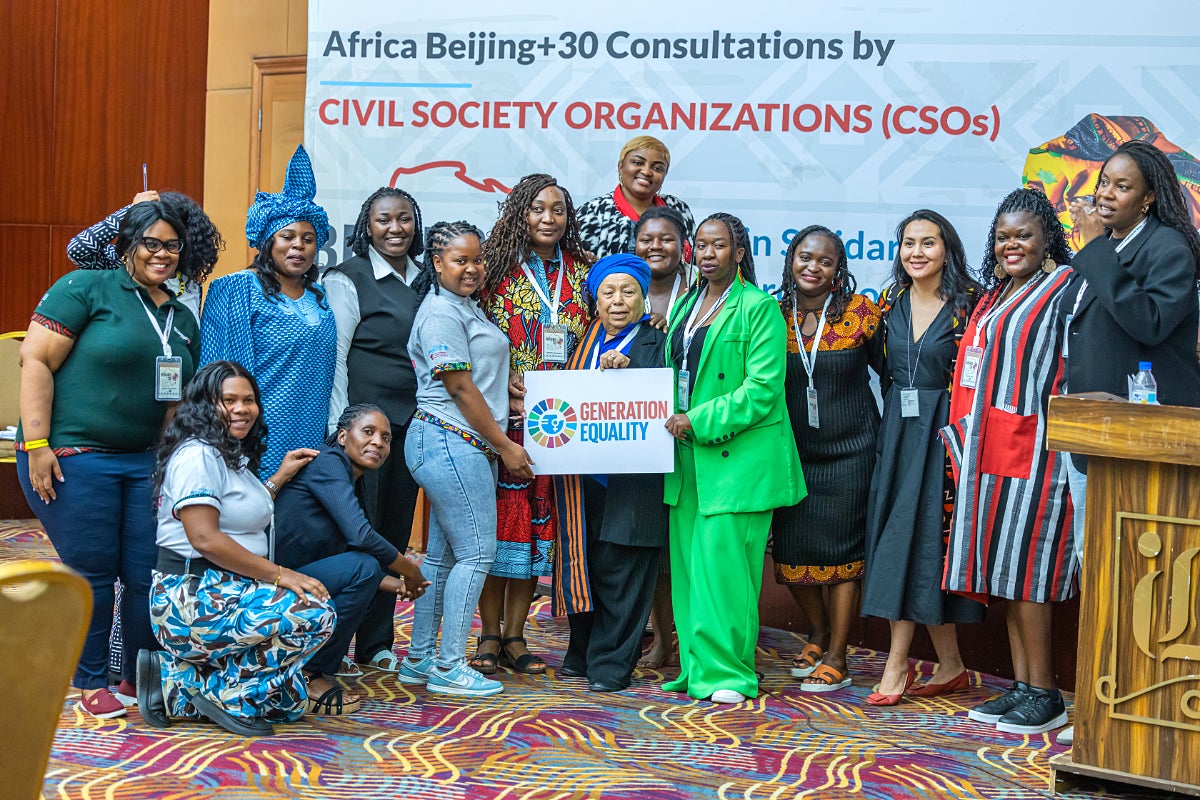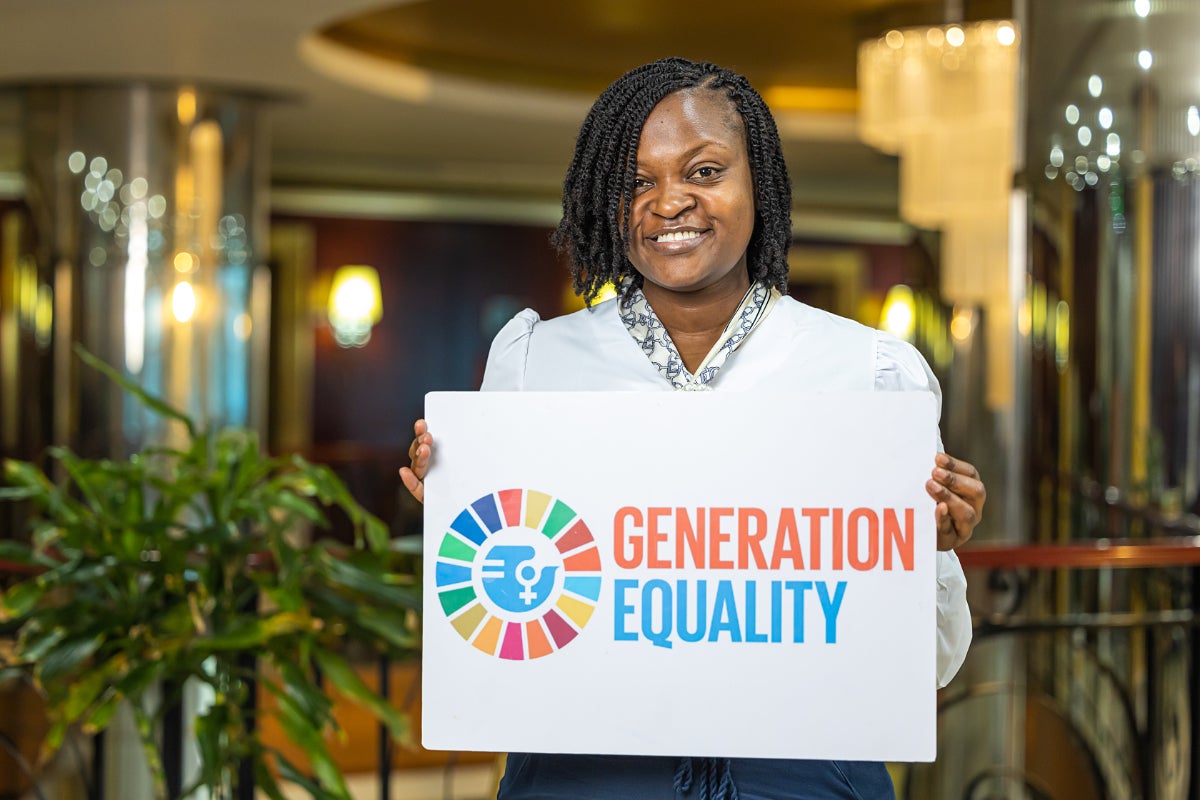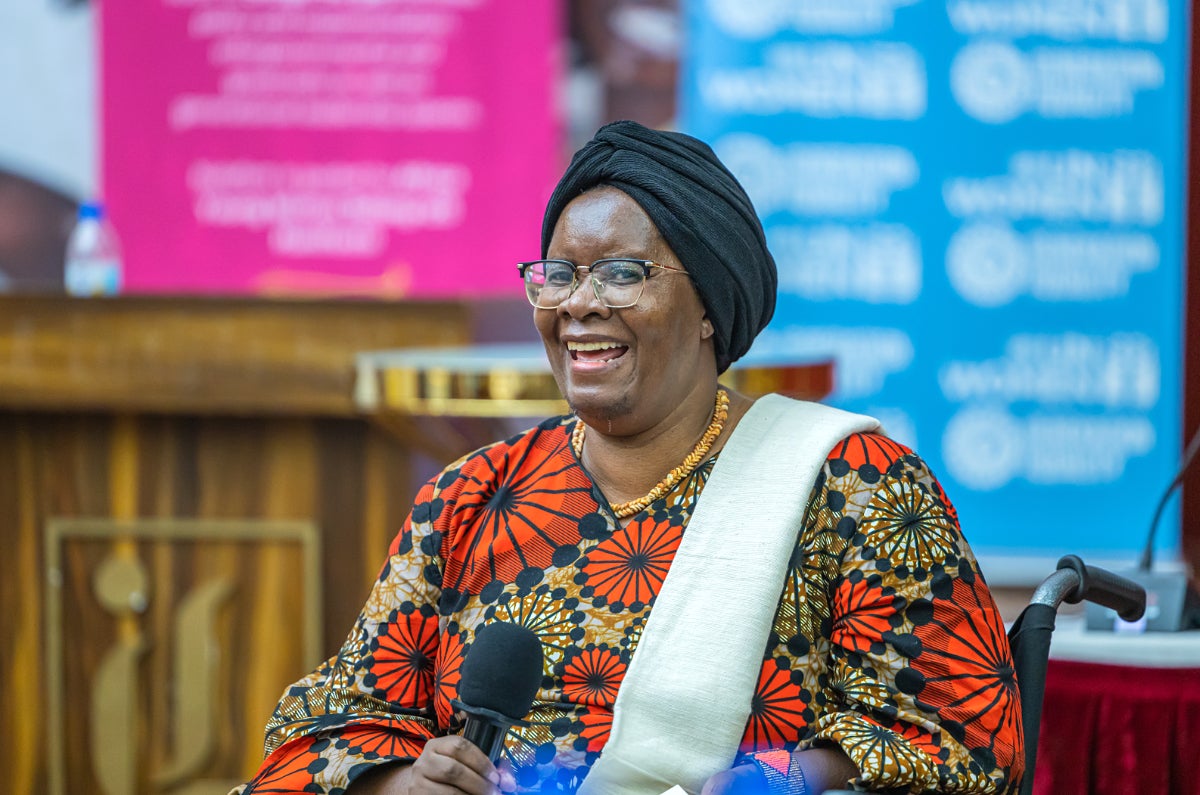Generation Equality commitment makers shape the future for African women at the Beijing+30 Africa Review meetings
Date:

More than 100 Generation Equality leaders, commitment makers, and youth advocates played a pivotal role in the recent Beijing+30 Africa Review Meetings, shaping a transformative vision for women and girls across the continent. The Beijing+30 review process brought together a diverse range of stakeholders, including youth, civil society organizations, and government leaders, in an unprecedented display of intergenerational and intersectional collaboration and consisted of:
- All Africa Youth and CSO consultations on 30-31 October brought together close to 200 participants each from across the continent, most of them being Generation Equality partners, resulting in a Youth Beijing+30 Position Paper and a CSO Position Paper.
- The Experts Group Segment on 1-2 November saw the presentation of these position papers and the drafting of the Common Africa Position Document.
- The Africa Pre-CSW69 on Beijing+30 Ministerial Conference on 6 November which was attended in person by 20 Ministers of Gender and Women’s Affairs from across Africa culminated in the adoption of the Africa Common Position Document.
- Leading up to these meetings, there were virtual consultations and sub-regional engagements conducted jointly with Generation Equality Action Coalition Leader, FEMNET, and Generation Equality Youth leaders ensuring wide participation and input.

“This is the first time we, as young people, have been involved at this magnitude in policy formulation. Through three consultations, over 400 young voices across Africa connected, and an X Space engagement reached more than 1,000 participants, showcasing youth’s power and commitment to leading transformation,” said Wanjuhi Njoroge, a member of the Generation Equality and Beijing+30 Youth Steering Committee.
The Common Africa Position—shaped by insights from African feminists, experts, including Generation Equality leaders—prioritizes actions such as recognizing unpaid care work, advancing women’s economic empowerment, addressing violence against women and girls, and ensuring gender parity in decision-making. These priorities reflect Africa’s unique challenges while emphasizing local ownership of solutions, including financing through African resources.
Generation Equality leaders contributed beyond thematic inputs, actively championing the inclusion of a multi-stakeholder partnership model in the Common Africa Position, particularly in Cluster 2 of the document. Their efforts demonstrated the power of collaboration among governments, civil society, the private sector, and youth groups. From co-convening sessions to moderating panels, their leadership was instrumental to the success of the review meetings.

“Generation Equality is a product of organizing, insisting, and seeking change to happen. It is also about creating new thinking, imagining possibilities, and serving as an impactful collective action mechanism,” said Nyaradzayi Gumbozvanda, Deputy Executive Director of UN Women, as she emphasized the power of Generation Equality and called for greater collaboration.
The meetings also featured a side event on advancing feminist leadership and addressing anti-rights movements, organized by Generation Equality commitment makers—Nala Feminist Collective, FEMNET, Yes Trust Zimbabwe—and supported by Generation Equality ESARO and Action Coalitions on Feminist Movements and Leadership (FML) and Gender-Based Violence (GBV).
Held in the format of a World Feminist Café, the session engaged participants in reflecting and strategizing on strengthening feminist alliances, enhancing multistakeholder collaboration, countering legislative rollbacks, building collective resistance, and fostering intergenerational leadership and solidarity.
“Responding to the global pushback against women's and girls’ rights, UN Women has developed a Push Forward Strategy. Key activities include mapping manifestations of pushback and good practices to counter it, as well as convening high-level advocacy events aligned with the Beijing+30 mobilization to amplify stakeholder efforts,” said Anna Mutavati, UN Women Representative to Kenya and incoming Regional Director for East and Southern Africa.
These discussions highlighted strategies to counter legislative rollbacks, foster intergenerational solidarity, and amplify grassroots voices in global forums.
As the world reflects on Beijing+30, the contributions of Generation Equality leaders serve as a reminder that systemic change requires grassroots empowerment, inclusive policymaking, and sustained advocacy.
Together, these leaders are turning the vision of Generation Equality into a reality, ensuring that the principles of the Beijing Declaration are fully realized for generations to come.
Read more: